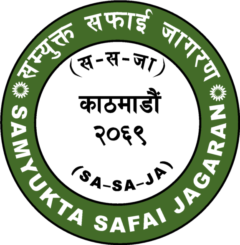Our Mission
To capacitate the Informal Waste Workers and bring all IWWs into one network and establish a key organization for dignified lives
Our Vision
To play a role for decent and dignified lives of the Informal Waste Workers by improving their social status
Our Objectives
- To capacitate the IWWs through meetings, interactions, trainings related with education, income generation, health, proper handling waste and skill development etc.
- Network with partners for coordination and advocacy related to rights and recognition of Informal Waste Workers
- Develop and implement effective strategies and programs to promote sustainable solid waste management
- Promote innovations in waste based enterprise and support in economic empowerment of Informal Waste Workers
